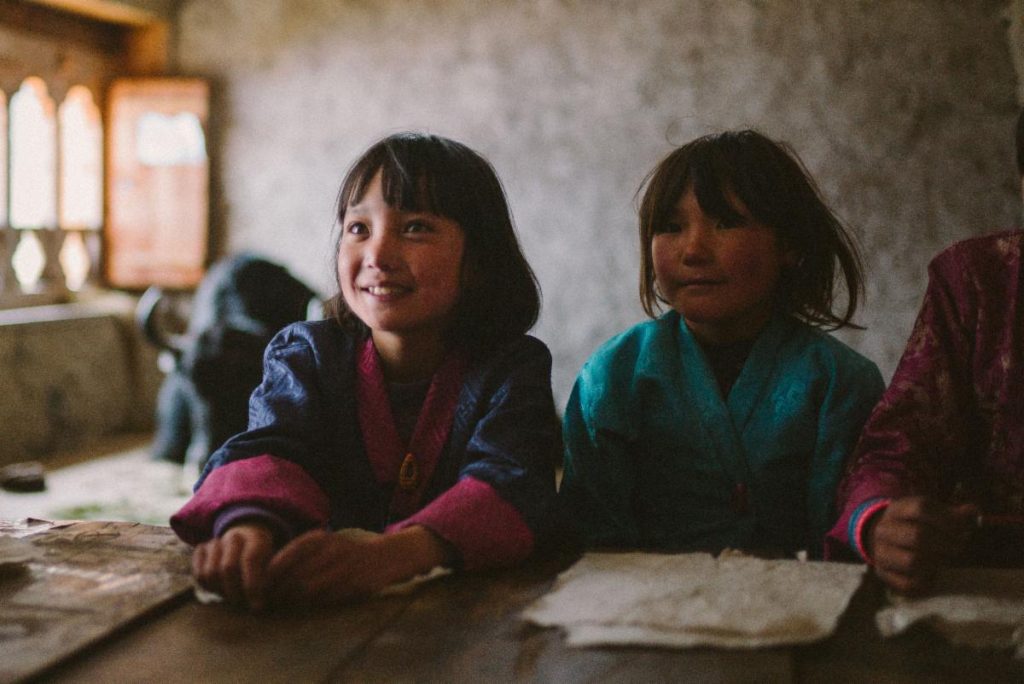Compared to the sometimes head-scratching nominees in Best Picture, the Oscars’ Best International Feature Film category almost always bursts with great films. This of course makes plenty of sense if you spend any time thinking about it. Countries submit one vetted choice to the Academy. A longlist is pared down to five movies tasked with standing in for the best of global cinema. Our current nominee pool is no different. While I may have gone a different direction on some of the choices, every nominated film has much to offer. Amidst the five sits Lunana: A Yak in the Classroom, which represents Bhutan’s first-ever Oscar nomination. Lunana was a surprise inclusion on nomination morning, but it’s easy to see how it charmed its way to success.

Working from a script he also wrote, director Pawo Choyning Dorji unfurls a modest tale of one man’s soul-searching. Ugyen (Sherab Dorji) works as a teacher for the Bhutanese government, part of the Gross National Happiness Index program. In the fourth year of a five-year contract, he wants to leave for Australia and become a professional musician. Mush to Ugyen’s chagrin, the program does not set him free but instead sends him to Lunana. The tiny village is a drive and an 8-day hike away from him. A place without cell service, internet access, or reliable electricity. It is in fact home to “the most remote school in the world.” Ugyen arrives ready to loathe his new position but gradually discovers that Lunana may have a great deal to teach him.
Dorji’s script grasps two track-tested genres and morphs them together. These are the ‘man goes into the wilderness and finds himself,’ and ‘new teacher inspires underserved children.’ What sets Lunana apart from the dusty archetypes of both genres is how Dorji inverts many of the character and narrative tropes we expect. Ugyen could care less about the natural world. This marks him as a distinct departure from the Thoreau-style protagonists of the former genre. He clamps his headphones on for as much of the hike in as he can. That is, until his iPod dies and he has to accept the world around him. In terms of teaching, Dorji clarifies quickly that Ugyen is far from the best teacher in the world. Therefore, the story is more about Ugyen’s students inspiring him than vice versa, literally flipping the script.

Even for the inversions, I was left wishing for a touch more depth in Dorji’s storytelling. Lunana operates in an atmosphere first, plot second arrangement. The film covers a span of months, but apart from signals in the weather and bits of expositional dialogue sprinkled throughout, it’s difficult to place exactly where in Ugyen’s tenure we might be at any given time. Resultantly, his character development and the tenor of his evolving dynamics with students and neighbors can feel a touch choppy. Dorji makes no question of hiding that the film’s arc will be Ugyen’s transition from cynical and somewhat self-centered into reflective and empathetic, so the issue is not thematic comprehension. Instead, without a firm thrust of narrative and character pacing at the foundation, Lunana’s charm buckles at times.
However, what helps forgive the slim storytelling, to a point, is Dorji’s gorgeous craft. A photographer before turning to filmmaking, Dorji has a gift for composition. Dorji stages shots and sequences that revel in the natural beauty of Lunana. Forests, mountains, streams, and the eponymous yaks serve as backgrounds and playgrounds for the characters. An image he repeats and varies is that of a character sitting on the edge of a small cliff. The village, valley, and imposing mountain range rolls out in front of them. It is the film’s first shot and steadily grows into a striking motif that challenges concepts of loneliness, happiness, and connection. Dorji has an eye for mining moving imagery out of naturalism, so even when the story falters a touch, Lunana is never short of breathtaking.

Within his frames, Dorji assembles a cast consisting of both actors and non-professionals. In fact, many of the characters are portrayed by the residents of the remote village where they filmed. Such a verité choice deepens the naturalism inherent in Dorji’s filmmaking style, lending Lunana an authenticity that you simply cannot fake. Of the cast, Sherab Dorji’s work as Ugyen, and little girl Pem Zam playing herself are the easy standouts. Sherab, in a role that could easily slip into archetypal caricature, reveals the stages of Ugyen’s development through subtle motions and facial expressions. Many of these moments come in the scenes with Pem Zam, who is the “class captain” and a remarkably precocious young girl. She has the magnetism of the best child actors, that shimmer of innocence and joy that radiates through the screen.
Lunana: A Yak in the Classroom is a charming and feel-good movie through and through. I say this without an ounce of negativity, for possibly now more than ever before we can use more films that celebrate the kindness of humanity. Give it a chance, and I promise you’ll have a big smile on your face before too long.
Before we let you go, we have officially launched our merch store! Check out all of our amazing apparel when you click here and type in GVN15 at checkout for a 15% discount!
Make sure to check out our podcasts each week including Geek Vibes Live, Top 10 with Tia, Wrestling Geeks Alliance and more! For major deals and money off on Amazon, make sure to use our affiliate link!

Devin McGrath-Conwell holds a B.A. in Film / English from Middlebury College and is currently pursuing an MFA in Screenwriting from Emerson College. His obsessions include all things horror, David Lynch, the darkest of satires, and Billy Joel. Devin’s writing has also appeared in publications such as Filmhounds Magazine, Film Cred, Horror Homeroom, and Cinema Scholars.







